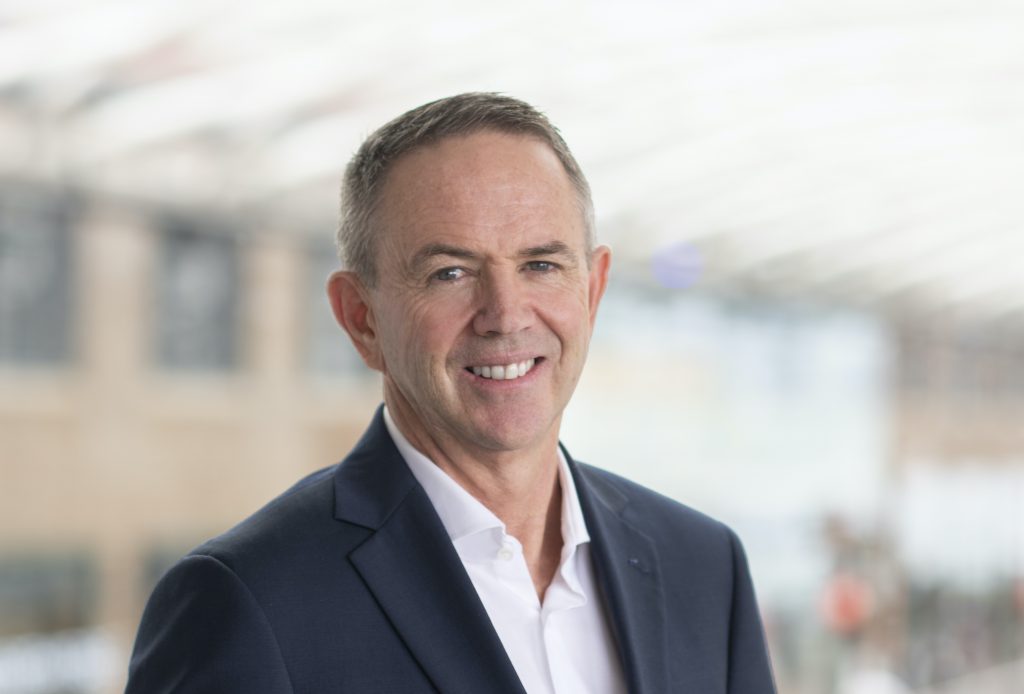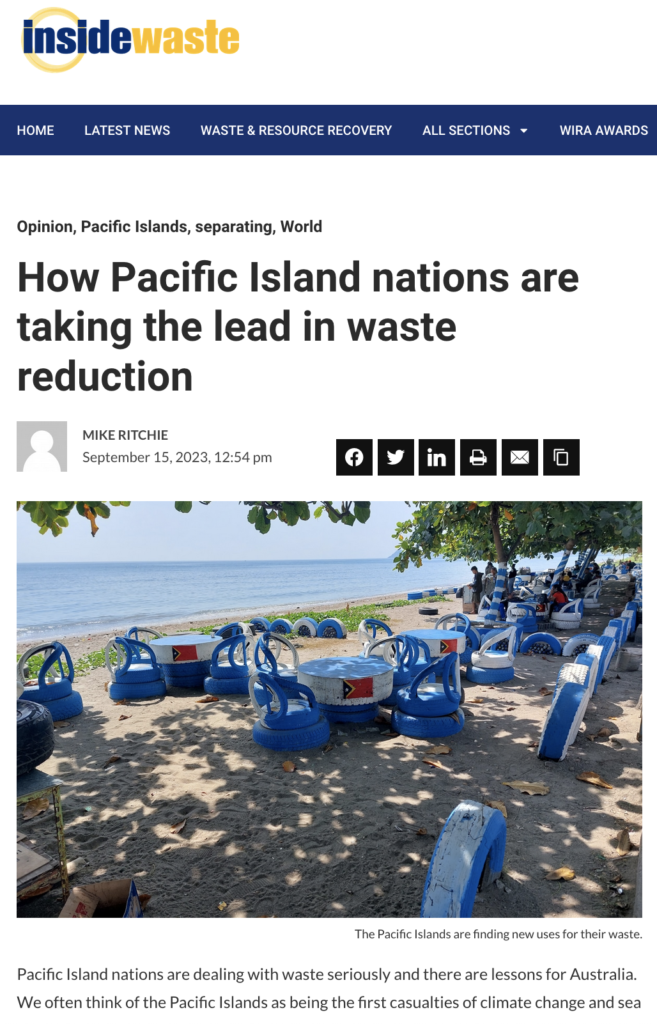Pacific dealing with waste
By: Mike Ritchie, MRA Consulting Group

The Pacific Islands are seriously dealing with waste and there are lessons for Australia.
We often think of the Pacific Islands as being the first casualties of climate change and sea level rise. And they are. But they are not taking it lying down.
Pacific Islands have taken strong action through the Climate Change convention negotiations stating their demand that we keep global temperatures to a 1.5oC increase, and no more.
Good on them. We need strong advocacy to protect our environment and humanity’s future.
But the point of this article is to show that they are taking similar strong action on waste and pollution.
Particularly through their regional organisation SPREP (Secretariat of the Pacific Regional Environment Program) and one of our own managing a multi-country waste management programme Bradley Nolan who was the Waste Manager at Bega Valley Shire Council and former Director of Environment at Hunter Joint Organisation of Councils, they are driving waste and recycling reform. Brad and his team are Everything from organics recovery and diversion from landfill, Energy from Waste, landfill management, end-of-life tyres, resource conservation, product stewardship, legislative reforms, multilateral environmental agreements, etc gets a thorough examination.
Everything from organics recovery and diversion from landfill, Energy from Waste, landfill management, end-of-life tyres, resource conservation, product stewardship, legislative reforms, multilateral environmental agreements, etc gets a thorough examination.
While there are many consultants working in the Pacific, as MRA, I can testify to the energy and enthusiasm that SPREP has for real reform.
We can all take lessons from that reform agenda.
If we want to stick to no more than 1.5oC warming, then the waste/recycling/CE industry needs to play its part.
I have said previously that this sector is already abating about 10% of Australia’s emissions (40 MT CO2‑e) but contributing 3% in direct emissions via methane emissions from landfills.
If we managed our waste in accordance with an emissions reduction paradigm, then we could achieve a further 10% reduction in Australia’s emissions.
I have said it before but the key climate change abatement activities for the waste and recycling sector include:
- Stop landfilling organics. Separate it out via FOGO and COFO for composting and anaerobic digestion (green energy);
- Capture the methane gas from existing landfills and flare it or generate electricity from it if there is enough;
- Capture the embodied energy of materials by achieving 80% recycling rates; and
- Establishing an Energy from Waste sector to capture the residual energy in materials that cannot be recycled.
Those four actions could reduce emissions by about 40 MT in Australia.
SPREP is reviewing exactly those things in the Pacific.
Below is a shortlist of recent projects that just MRA has done, or is doing, which demonstrate that a strategic approach to emissions and recycling is required if we are serious about addressing climate change:
- Sustainable Waste Actions in the Pacific (SWAP) Project to manage waste and reduce landfill
- Regional waste system analysis with particular reference to Organics recovery and recycling
- SPREP members – Recycling Markets to grow recycling rates
- Data monitoring and reporting framework -achieving targets and emissions
- SPREP Used oil technologies including energy
- SPREP Options analysis for used tyres
- SPREP Healthcare Waste management options
- Timor-Leste Solid Waste Management Guidelines
- Samoa E-Waste Product Stewardship Scheme
- Solomon Islands and Vanuatu Waste audit reports
- Palau End of Life Tyre Options, Standards, and Market Assessment
The Pacific is doing its part. Sure, there is a lot more to do but they are rapidly reforming.
Many Australian States also need to do the strategic work on how we are going to reduce emissions from waste and achieve our 80% diversion targets by 2030.
I encourage governments to be bold for the sake of ours and future generations.
Mike Ritchie is the Managing Director at MRA Consulting Group.
This article has been published by the following media outlets:




